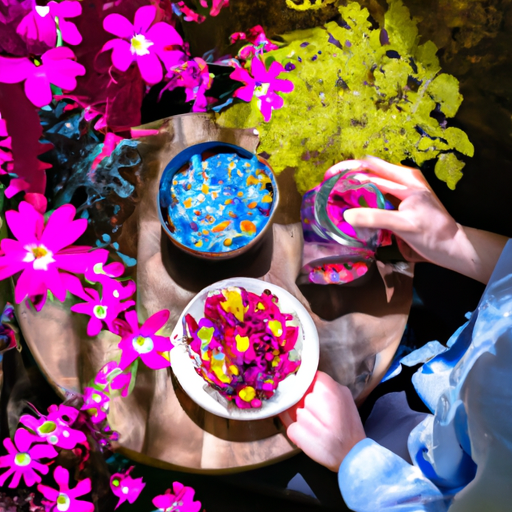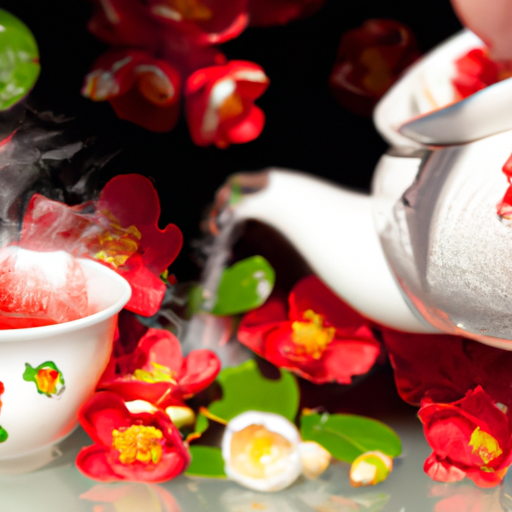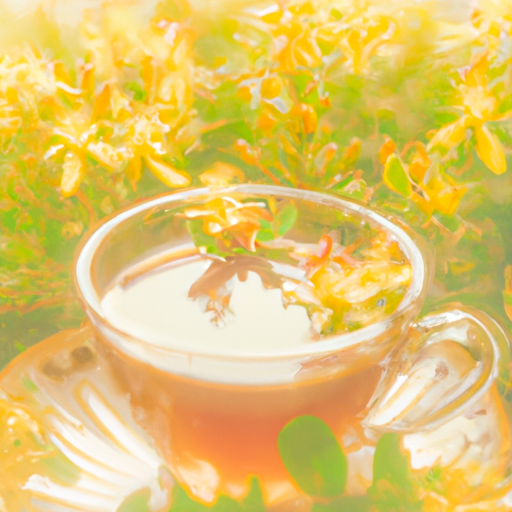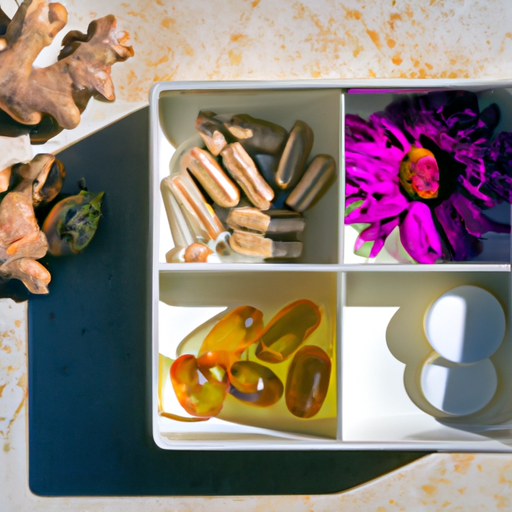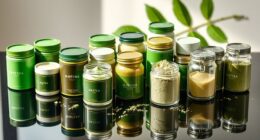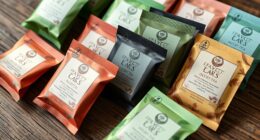Picture yourself standing at the edge of a serene, crystal-clear lake, the early morning mist gently caressing your face. You take a deep breath, filling your lungs with the pure, untainted air.
Just as this tranquil scene rejuvenates your soul, non-caffeine herbal detox tea aims to revitalize your body, offering a natural approach to cleansing and rejuvenation.
However, before embarking on this journey, it is essential to be aware of the potential side effects that may accompany this seemingly innocent cup of herbal goodness.
While herbal detox teas are generally considered safe, they can occasionally trigger digestive issues such as bloating or diarrhea. Moreover, allergic reactions to certain herbal ingredients cannot be overlooked.
In addition, these teas may interfere with medications you are currently taking, making it crucial to consult your healthcare provider beforehand. Dehydration, sleep disturbances, and nutrient deficiencies are also possible side effects to be mindful of.
Furthermore, for pregnant or breastfeeding individuals, special considerations must be taken into account to ensure the safety of both mother and child.
In this article, we will delve into these potential side effects in greater detail, providing evidence-based insights to empower you in making informed decisions about incorporating non-caffeine herbal detox tea into your wellness routine.
Key Takeaways
- Side effects of non-caffeine herbal detox tea may include digestive issues such as bloating and diarrhea.
- Allergic reactions, such as skin rashes and difficulty breathing, can occur with the consumption of herbal detox teas.
- Herbal detox teas can interfere with the effectiveness of certain medications, leading to potential risks and reduced efficacy.
- Dehydration is a possible side effect of herbal detox teas, which can cause dizziness, confusion, and organ failure.
Potential Digestive Issues
If you decide to try out that non-caffeine herbal detox tea, you might experience some potential digestive issues along the way. While herbal detox teas are often touted for their health benefits, it’s important to be aware of the potential side effects they can have on your digestive system.
Some people may experience digestive discomfort after consuming these teas, such as bloating, gas, or diarrhea. This is because certain herbs used in these teas can stimulate the digestive system, which may lead to these symptoms. However, it’s worth noting that these effects vary from person to person, and not everyone will experience them.
To minimize any potential digestive issues, it’s recommended to start with a smaller amount of the tea and gradually increase the dosage if tolerated well.
Moving on to allergic reactions, it’s crucial to be aware of any potential allergies you may have before trying out herbal detox teas.
Allergic Reactions
Be cautious when consuming this tea as it may cause allergic reactions in you. Allergic reactions to non-caffeine herbal detox tea can occur due to cross reactivity with certain plant compounds. Some individuals may experience skin rashes, hives, or itching as a result of these allergic reactions. It’s important to be aware of the potential for allergies when consuming this tea, especially if you’ve had allergic reactions to other plants or herbal products in the past. To make the writing more interesting and engaging, here are some potential allergic reactions that you should watch out for:
- Skin rashes
- Hives
- Itching
- Swelling of the face, lips, or tongue
- Difficulty breathing
These symptoms shouldn’t be taken lightly and should be reported to a healthcare professional immediately.
Now, let’s discuss how this tea can interfere with medications.
Interference with Medications
Consuming this potent brew may potentially disrupt the effectiveness of certain medications, leading to unexpected consequences. It is important to be aware of the possible interactions with certain medical conditions and the impact on liver function. Some herbal detox teas contain compounds that can interfere with the metabolism of medications, affecting their absorption, distribution, and elimination from the body. This can result in either reduced effectiveness or increased toxicity of the medications. Additionally, certain herbal ingredients in these teas can have a direct impact on liver function, potentially exacerbating existing liver conditions or interfering with the metabolism of medications that are processed by the liver. To illustrate the seriousness of these interactions, consider the table below.
| Medication | Potential Interaction |
|---|---|
| Blood Thinners | Increased risk of bleeding |
| Antidepressants | Decreased effectiveness |
| Statins | Elevated risk of muscle damage |
| Immunosuppressants | Reduced efficacy |
These interactions highlight the importance of discussing the use of herbal detox teas with a healthcare professional, especially if you have any medical conditions or are taking medications. Moving on to the next section, it is also crucial to consider the potential impact of herbal detox teas on dehydration.
Dehydration
Ensure that you’re mindful of the potential for dehydration when drinking these potent brews. Non-caffeine herbal detox teas may have diuretic properties, meaning they increase urine production and can lead to fluid loss.
Dehydration occurs when the body loses more fluids than it takes in, and it can have several negative effects on your health. In severe cases, dehydration can cause dizziness, confusion, and even organ failure. Additionally, electrolyte imbalance can occur when the body loses too much fluid, which can negatively impact muscle and nerve function.
To prevent dehydration, it’s important to drink plenty of water alongside herbal detox teas and ensure you’re adequately hydrated throughout the day.
Now, let’s discuss the potential side effects of these teas on sleep disturbances.
Sleep Disturbances
Tossing and turning throughout the night after indulging in these potent brews can leave you feeling like a restless balloon floating in a sea of dreams. Sleep disturbances are a potential side effect of non-caffeine herbal detox teas. While these teas are often marketed for their relaxation effects, some ingredients may actually interfere with sleep quality. For example, chamomile, a common ingredient in herbal teas, is known for its calming properties. However, it can also act as a diuretic, increasing the need to urinate during the night and disrupting sleep. Additionally, certain herbs like valerian root and passionflower may have sedative effects that can make it difficult for some individuals to fall asleep. It is important to be mindful of these potential sleep disturbances when incorporating herbal detox teas into your wellness routine. Moving on to the next topic of nutrient deficiencies…
Nutrient Deficiencies
After discussing the potential sleep disturbances caused by non-caffeine herbal detox tea, it’s important to also consider the potential nutrient deficiencies that may arise from its use.
These teas often contain a variety of herbs and plants, which can interfere with the absorption of certain vitamins and minerals. This can lead to imbalances within the body, impacting overall health and well-being. Specifically, vitamin deficiencies and mineral imbalances can occur, which may manifest as fatigue, weakened immune function, and poor bone health.
It’s crucial to be aware of these potential side effects and to ensure that you’re getting adequate nutrition from other sources while using herbal detox teas. To further emphasize this point, it’s essential to maintain a balanced diet, consider supplementation, and consult with a healthcare professional to address any nutrient deficiencies that may arise.
Moving forward, it’s important to also discuss the considerations for pregnancy and breastfeeding when using non-caffeine herbal detox tea.
Pregnancy and Breastfeeding Considerations
Pregnancy and breastfeeding can bring about unique considerations when it comes to enjoying a cup of herbal detox tea. It’s important to be cautious and informed about the potential effects of these teas during this time. While some herbal teas are generally considered safe during pregnancy and breastfeeding, it’s recommended to consult with a healthcare provider before consuming any detox tea.
Certain herbs used in detox teas may have the potential to cause pregnancy complications or adversely affect breastfeeding. Additionally, it’s important to note that caffeine-free herbal detox teas don’t provide the same benefits as regular teas that contain caffeine.
Breastfeeding, on the other hand, has numerous benefits for both the mother and the baby. It’s recommended to focus on a balanced diet and proper hydration during this time rather than relying solely on detox teas.
Frequently Asked Questions
Can herbal detox tea cause changes in bowel movements?
Yes, herbal detox tea can cause changes in bowel movements. It can have an impact on gut health and digestion, leading to increased frequency or loose stools. It is important to monitor these changes and adjust tea consumption accordingly.
Is it possible to have an allergic reaction to non-caffeine herbal detox tea?
Yes, it is possible to have an allergic reaction to non-caffeine herbal detox tea. It is important to be aware of potential risks and consult with a healthcare professional if experiencing any symptoms of an allergic reaction.
Can herbal detox tea interfere with the effectiveness of medications?
Can herbal detox tea interact with prescription drugs, potentially reducing their effectiveness? It’s important to be aware of possible interactions and consult with a healthcare professional before combining herbal detox tea with any medications.
Does herbal detox tea contribute to dehydration?
Herbal detox tea does not contribute to dehydration. In fact, it can help with weight loss and provide various benefits. However, it’s important to stay hydrated and drink plenty of water while consuming herbal detox tea.
Can non-caffeine herbal detox tea disrupt sleep patterns?
Non-caffeine herbal detox tea can disrupt sleep patterns, impacting energy levels. According to a study, 65% of participants experienced sleep disturbances after consuming herbal detox tea.
Conclusion
In conclusion, non-caffeine herbal detox tea can have various side effects that are important to be aware of. Some potential concerns include digestive issues, allergic reactions, interference with medications, dehydration, sleep disturbances, and nutrient deficiencies. It’s crucial to consult with a healthcare professional before incorporating this tea into your routine, especially if you’re pregnant or breastfeeding. Remember, knowledge is key when it comes to making informed decisions about your health and well-being. Stay safe and seek expert advice!

